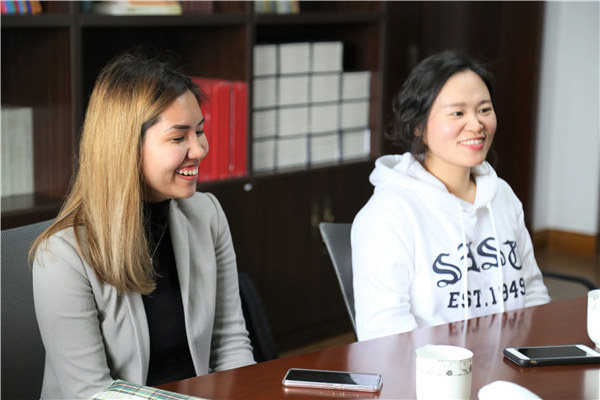Imbibing a new culture


He recalls that he once wanted to print things at school, but the school couldn't provide him with a printer.
"Talking to my boss and co-workers to try to get one was challenging, especially when faced with a 'soft no' which I thought meant yes but really meant no," he says.
The problem became simple to tackle once he made friends with more Chinese.
"My Chinese friends gradually became more willing to talk freely with me, and I could query them about anything that I did not understand.
"It was a slow process, but everything that at first was new, strange and unexpected became normal and a part of my life," he says.
Elmakias' experience in Gansu has made his life in Shanghai much easier.
He has also learned the Shanghai dialect through interaction with locals, as well as traveling in the metropolis.
"I can't think of a better way to understand Chinese culture than hearing people's stories," he says.
The process of getting accustomed to Chinese life is sped up by the assistance of universities as well.
At East China Normal University, courses and lectures on Chinese law, policies and culture, are offered to international students to keep them abreast of national developments, according to Huang Meixu, director of the center of international education.
Culture-related on-campus programs are also held and various groups are open to international students at the university to accelerate their integration with domestic students.
"We also organize off-campus projects, such as social investigations into rural China, and volunteer work at nursing homes," says Huang.
Such practices can also be seen at Shanghai Jiao Tong University, and are aimed at promoting cultural exchanges between domestic and international students.




































